What to know about Ralph Metcalfe, the Olympic sprinter and Marquette grad who will soon have a street, park and school named after him
On Saturday, Milwaukee will rename North 34th Street in honor of a man who left his mark on the city and the world — Ralph Metcalfe.
An Olympic athlete, Marquette graduate, and U.S. representative, Metcalfe already has a park, school and neighborhood named after him in Milwaukee.
Now, 34th Street, which leads to Metcalfe Park, will be renamed and affixed with the name Metcalfe. The ceremony will be held at 10 a.m. at 3401 W. Center St. Metcalfe’s grandson, Nasser Metcalfe of New York, will offer remarks on behalf of the family.
Here is what you need to know about Ralph Metcalfe.
Metcalfe arrived in Milwaukee in the early 1930s
Born in Atlanta in 1910, Metcalfe moved to Chicago as a child, where he graduated high school in 1930. It was in high school where Metcalfe began a long and successful career as a track athlete.
“I was told by my coach that as a Black person I’d have to put daylight between me and my nearest competitor,” said Metcalfe, according to an Oct. 11, 1978, Chicago Tribune article. “I forced myself to train harder so I could put that daylight behind me.”
Metcalfe then traveled to Milwaukee to attend Marquette University some time after high school.
'America's leading sprinter from 1932-1934'
According to his Marquette University biography, "Metcalfe was America's leading sprinter from 1932-1934."
During his sophomore year at Marquette, Metcalfe equaled the world of record of 10.3 seconds in the 100-meter dash, as well as the 200-meter world record of 20.6 seconds. He won the first of three NCAA championships in 1932, in both the 100- and 200-meter dashes.
Robbed of gold at the 1932 Olympics
Metcalfe competed at the 1932 Summer Olympics in Los Angeles. He won a bronze medal in the 200 meters and a silver in the 100. Metcalfe finished second in the 100 meters to U.S. sprinter Eddie Tolan, but believed he was robbed of the gold medal.
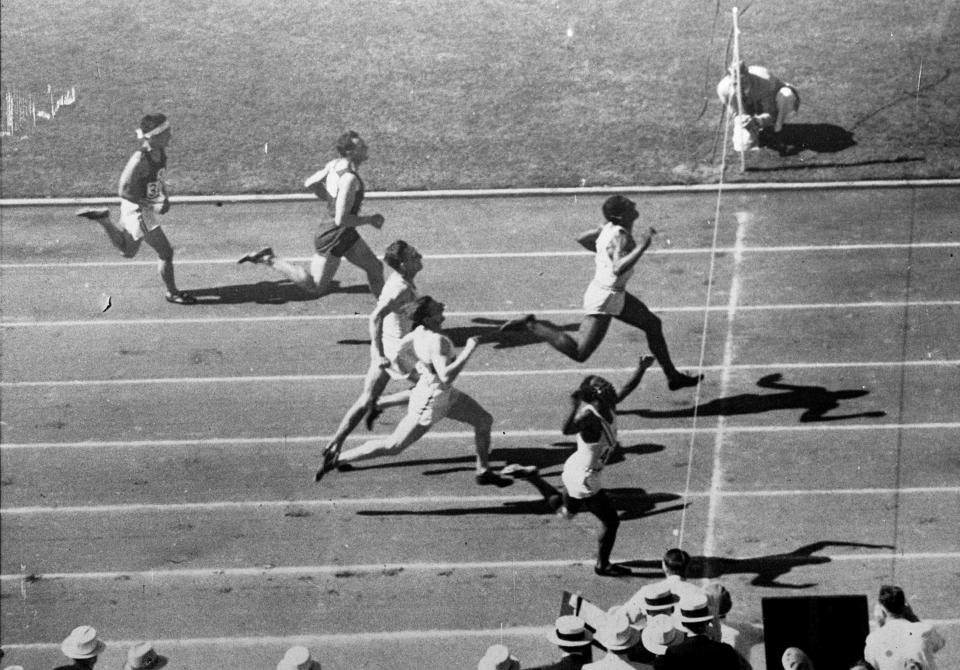
"I ... went out with the one idea of beating Eddie to the tape and thought I had done so," Metcalfe told the Milwaukee Journal in an Aug. 2, 1932, story. "The twine was taut when I touched it with my chest, but the officials had seen Tolan across the finish line."
Metcalfe returned to campus and beat Jesse Owens in a race
"Over the next several years Metcalfe remained a world class runner, competing for Marquette in sprints between 40 yards and 220 meters," according to his university biography.
Metcalfe was an outstanding student and campus leader. In 1933, he was inducted into Alpha Sigma Nu, which is the elite Jesuit academic honor society on campus.
At the Amateur Athletic Union national championship at the former Marquette Stadium in 1934, Metcalfe bested Olympic great Jesse Owens in the 100-meter dash. Owens and Metcalfe would go on to be rivals and teammates.

In 1936, Metcalfe was elected president of his senior class. He graduated cum laude that same year.
Competes in the 1936 Olympics in Nazi Germany
Metcalfe was selected to compete at the 1936 Summer Olympics held in Nazi Germany.
He and Owens were late selections for the U.S. team competing in the 400-meter relay, reportedly because the runners they replaced were Jewish. The U.S. 400-meter relay team would go on to win gold.
In addition to the gold medal for the relay team, Metcalfe won another silver medal, again the 100 meters, losing this time to Owens.
Following the Olympics, Metcalfe retired from competitive sports. During his career in track, Metcalfe equaled or bettered 13 world records.
Years later, Owens credited Metcalfe with helping his Black teammates get through the Berlin Games. "(Metcalfe) said we were not there to get involved in the political situation. We were there for one purpose — to represent our country," Owens said, according to a Oct. 11, 1978, Chicago Tribune article.
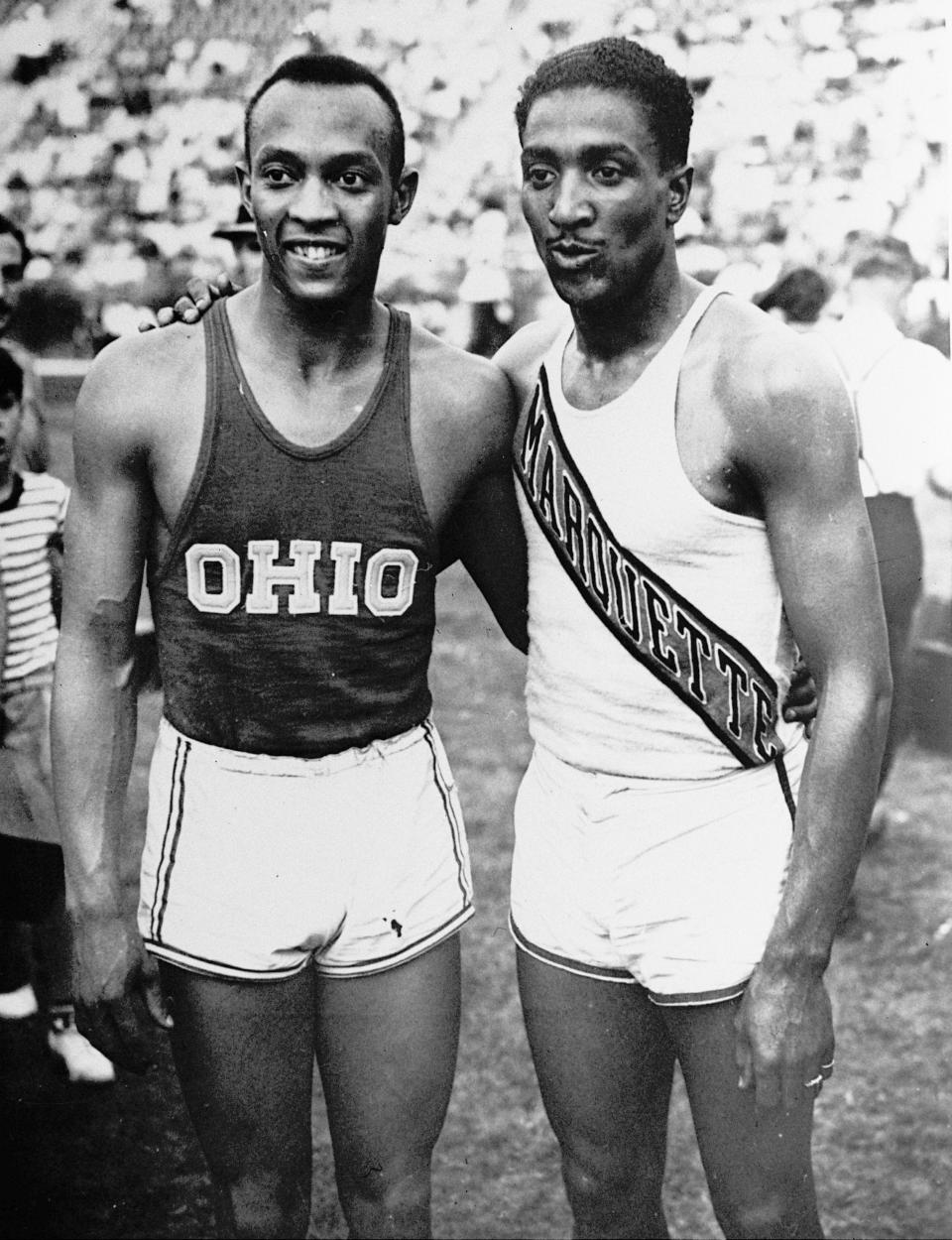
Metcalfe leaves Milwaukee; serves in the Army
Metcalfe left Milwaukee in 1936 to attend the University of Southern California, where he obtained a master's degree in 1939.
Then, Metcalfe accepted a teaching and coaching position at Xavier University of New Orleans, where he developed five national champions in track and field. He then left New Orleans and served in the Army during World War II.
Returns to Chicago
Following the war, Metcalfe moved back to his hometown of Chicago, and began a 30-plus-year career in politics.
By 1947, he was director of Chicago's Department of Civil Rights. The same year, he told the Milwaukee Urban League in a meeting that understanding and education were the best ways to combat racism.
"Sometimes it is as necessary for the Negro to remove a prejudice as it is for white people to remove a prejudice against the Negro," Metcalfe said, according to a Jan. 20, 1947, Journal story on the meeting.
In 1947, Metcalfe married Madalynne Fay Young. The couple had one child, Ralph Metcalfe, Jr.
Elected to the Chicago Common Council
In 1955, Metcalfe was elected alderman in Chicago. He became a leader among Black Democrats trying to shape the party's stance on civil rights.
He then became president pro tempore of the City Council and served as a longtime ally to Chicago's powerful mayor, Richard J. Daley.
Elected to the U.S. House of Representatives
In 1970, Metcalfe is elected to the U.S. House of Representatives after essentially being hand-picked by his predecessor, U.S. Rep. William L. Dawson.
Metcalfe did have a contentious primary, where he was criticized for his ties to Daley. He would win the general election with 91% of the vote.
"Metcalfe’s appointment to the influential Interstate and Foreign Commerce Committee marked the first time an African-American Member served on the panel in the 20th century," his official U.S. House biography states.
In 1971, Metcalfe helped found the Congressional Black Caucus, which still exists today.
Breaks from Daley and the Democratic machine
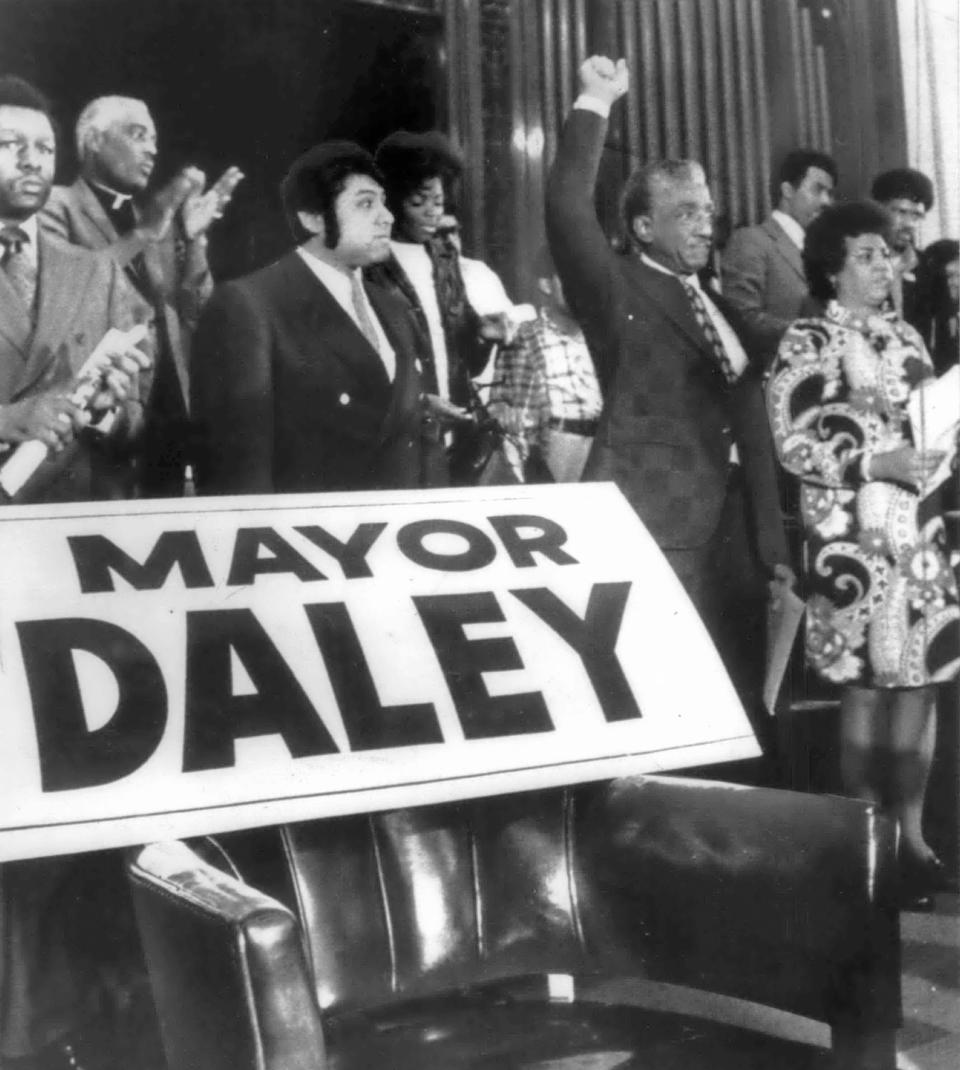
Metcalfe received national attention in 1972 when he publicly broke ranks from Daley and the Democratic machine. "The Mayor doesn’t understand what happens to Black men on the streets of Chicago, and probably never will," said Metcalfe, according to a July 8, 1983, New York Times article.
Metcalfe believed Daley was too lenient on Chicago's police department and the ongoing police brutality in the Black community. Metcalfe would hold public hearings before Congress from victims and witnesses of police brutality.
In 1975, Metcalfe endorsed Daley's primary opponent, and in turn Daley endorsed Metcalfe's primary opponent in 1976. Both men were reelected. "The mayor decided he wanted to destroy me and I decided I wouldn't let him," Metcalfe said, according to Associated Press coverage of the election that ran in newspapers around the country March 17, 1976.
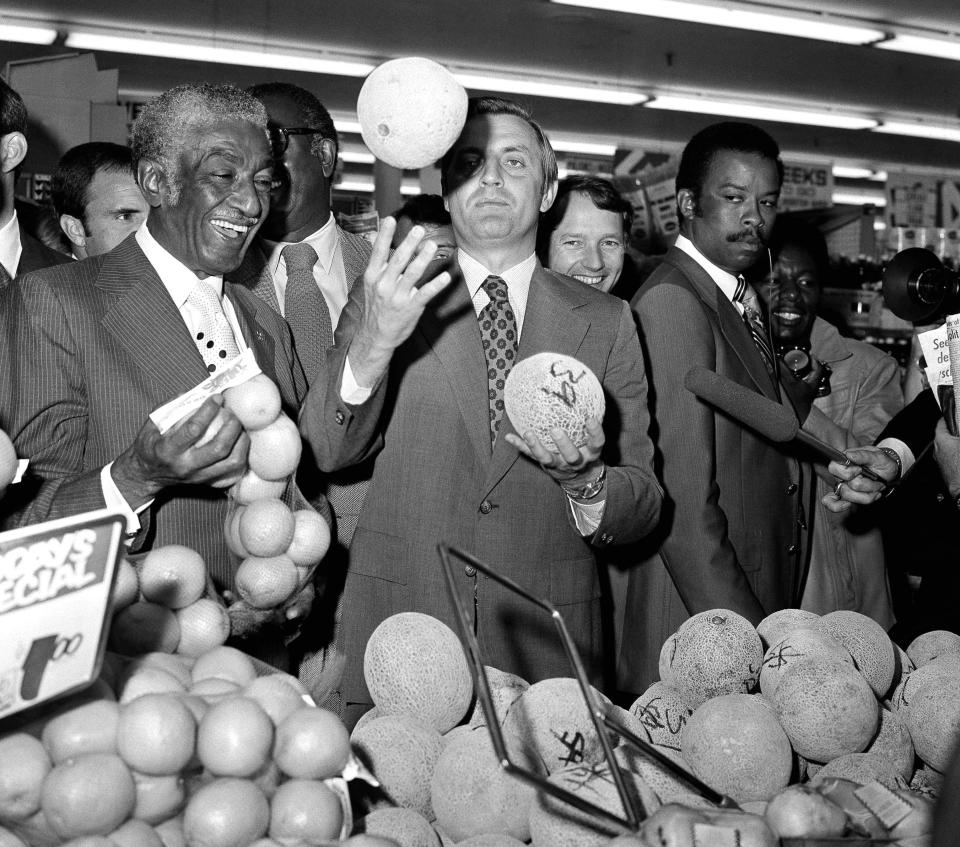
After Daley died in December 1976, Metcalfe began to mend fences with the Democratic establishment in Chicago.
Metcalfe's sudden death
During the 95th Congress (1977-79), Metcalfe co-sponsored legislation to declare February as Black History Month.
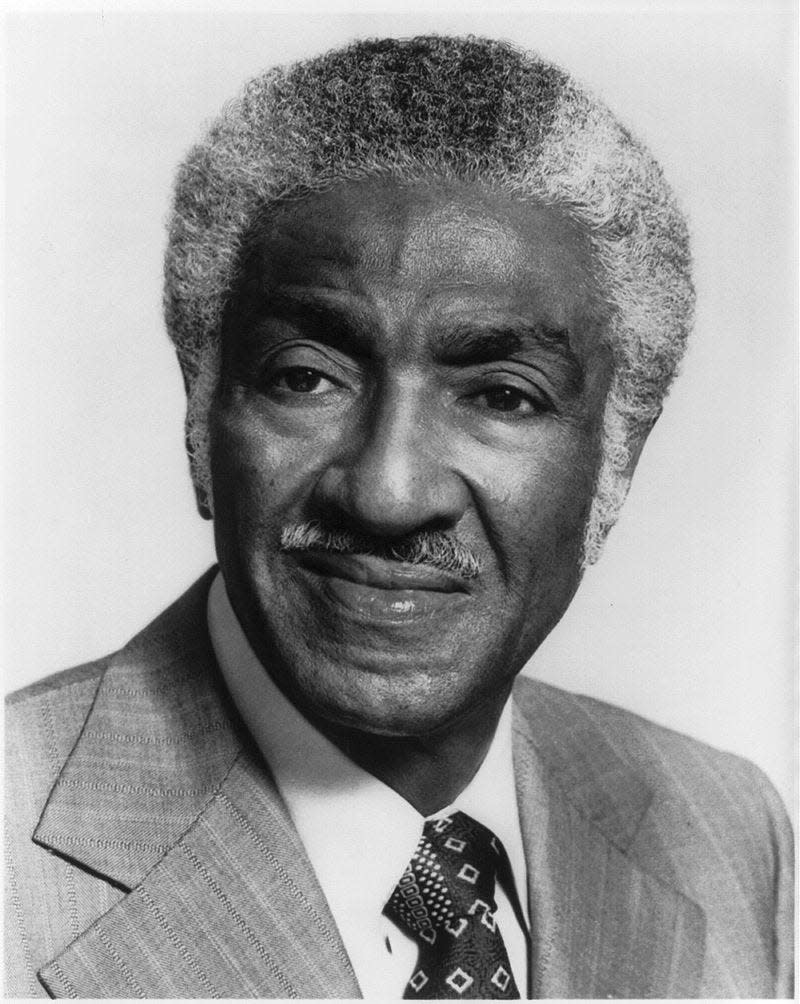
Then, Metcalfe died suddenly of an apparent heart attack on Oct. 10, 1978, at age 68, about a month before his certain reelection.
U.S. Rep. Louis Stokes of Ohio praised Metcalfe's dedication to the Black community. "Ralph was a man who had the ability to inspire people," Stokes entered into the Congressional Record. "The type of individual who, as you came to know him, you would have to admire."
As a Black Olympic gold medalist during the 1936 Berlin Games, Metcalfe's impact is profound, it was during his time in Milwaukee at Marquette that Metcalfe became well known. The city has recognized Metcalfe by naming a neighborhood (Metcalfe Park) and school after him (Ralph H. Metcalfe School).
Chris Foran of the Journal Sentinel contributed to this report.
Contact Drake Bentley at (414) 391-5647 or [email protected]. Follow him on Twitter at @DrakeBentleyMJS.
Our subscribers make this reporting possible. Please consider supporting local journalism by subscribing to the Journal Sentinel at jsonline.com/deal.
DOWNLOAD THE APP: Get the latest news, sports and more
This article originally appeared on Milwaukee Journal Sentinel: What to know about Ralph Metcalfe, the Olympian and Marquette grad
